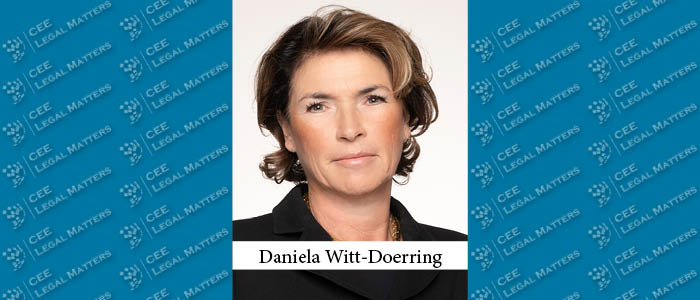In Austria, ESG issues are at the forefront, while the Viennese Building Code is being updated to promote environmentally friendly measures, according to Weber & Co Partner Daniela Witt-Doerring.
"Currently, Austria, similarly to many other CEE countries, places significant emphasis on ESG matters," Witt-Doerring begins. "In the Austrian real estate sector, ESG considerations are on the increase, due to legal and market requirements. Notably, green leases and the impact of ESG measures on a company’s ability to secure financing for ongoing or new projects are extensively discussed. Larger companies and suppliers, being financially capable, are leading the ESG implementation trend, while mid-market and smaller companies are slightly lagging behind." Yet, she says, irrespective of the sector, the ESG topic remains paramount.
Witt-Doerring highlights that the environment in ESG is currently central to the discussions. "With the implementation of EU directives, we can now provide advice that was not relevant five years ago when there was little interest in this area." According to her, social issues also gain interest: "in the building industry, significant attention is directed toward creating properties and buildings that are accessible to everyone, including people with disabilities."
Another notable update, according to Witt-Doerring, is related to the Viennese Building Code, currently in the draft stage of a considerable amendment. "Once finalized, the document will undergo political decision-making and is projected to come into force by year-end, significantly impacting the appearance of new buildings and expediting procedures for environmentally positive measures on existing buildings, like heat pumps without permits," she notes. "The city aims to facilitate green measures and disallow ground sealing while promoting green facades and natural air conditioning through plant integration."
"Further, the hospitality industry in Vienna is heavily influenced by the presence of Airbnb, which has led to concerns about supply shortages and increasing rental prices for local residents," Witt-Doerring continues. "To address this issue, the city is planning to impose further restrictions on Airbnb usage, particularly in the inner districts. As older buildings in the city are subject to controlled rent, some property owners prefer short-term rentals to tourists as they can potentially earn more than long-term rentals. Such short-term rentals are aimed to be heavily restricted by the new building code."
Addressing the overall market situation, Witt-Doerring says: "Due to increased interest rates and economic insecurities paired with inflation and in particular the rise in energy prices, the real estate market is experiencing a significant slump in demand for certain property types, causing concern for some law firms depending on the diversity of their services. The drop in demand for residential transactions and contracts, along with a slowdown in new construction, is presenting challenges. The current holding pattern is expected to be temporary, but there is a risk of some developers going insolvent before the market improves."
Finally, Witt-Doerring also draws attention to whistleblowing legislation, which is currently a significant topic of discussion in Austria. "The country has implemented national laws related to this, albeit a bit delayed. Many businesses are actively working with lawyers to develop systems that comply with the new regulations by the deadline." The Austrian version of the law offers protections for individuals who report violations of the law, including those related to EU laws and anti-corruption measures, she notes. "However, it does not provide protection to employees who expose other criminal actions, which has drawn criticism from some who argue that other types of disclosures, such as those related to white-collar crime, should also be safeguarded."

















